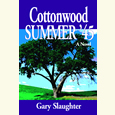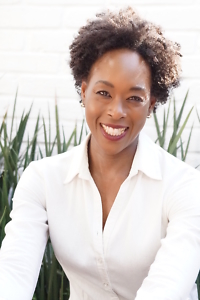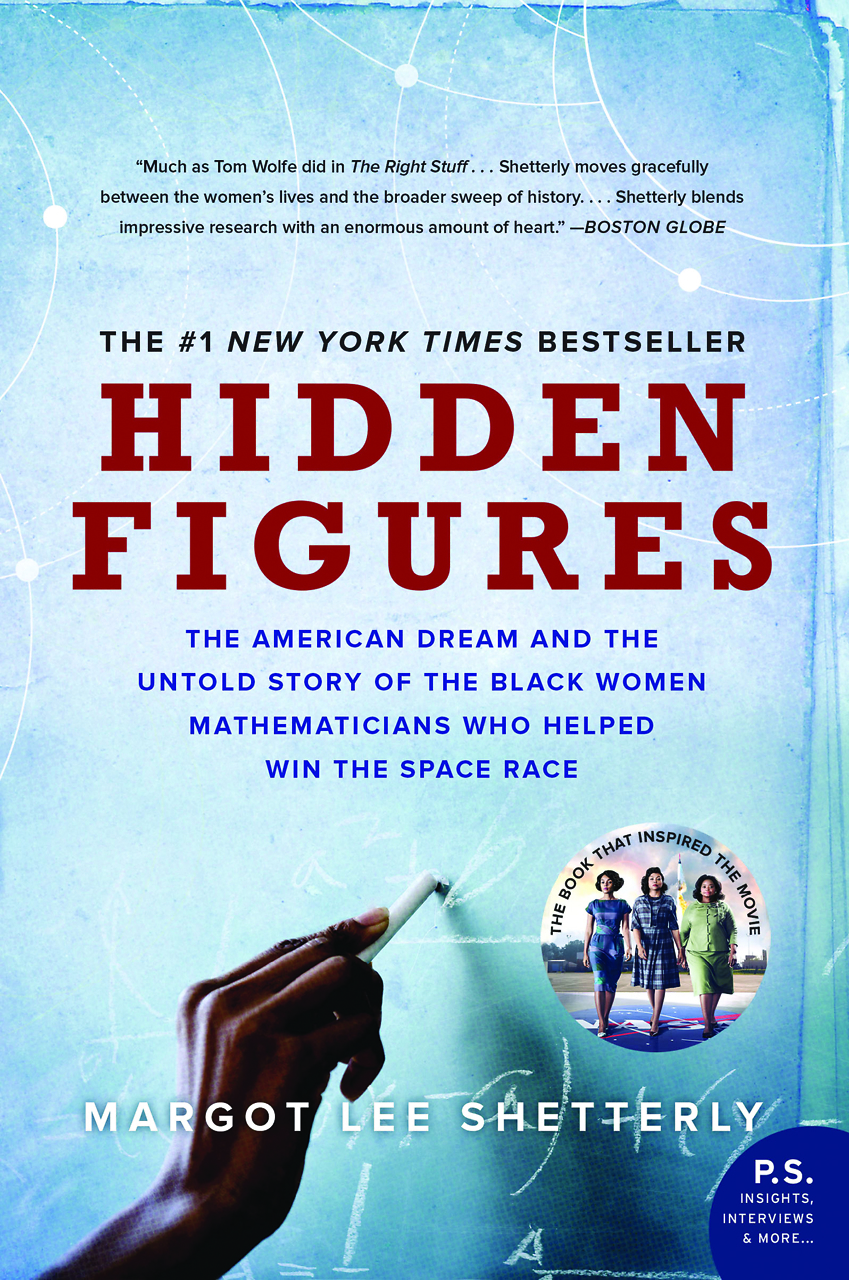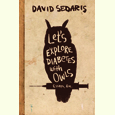A Lifelong Task
Poet Alicia Ostriker talks to Chapter 16 about wrestling with literary and cultural tradition
FROM THE CHAPTER 16 ARCHIVE: This interview originally appeared on January 23, 2012.
***
In her widely acclaimed 1986 book, Stealing the Language: The Emergence of Women’s Poetry in America, Alicia Ostriker observed that every literary movement “has its roots in a past which it at once perpetuates, repudiates, and transforms.” The same might be said about Ostriker herself. As both a critic and poet, Ostriker has drawn from the past, interrogating and reinterpreting her literary and cultural forebears. With a sensibility unapologetically shaped by the male-dominated literary pantheon—William Blake and Walt Whitman loom large among her heroes—Ostriker has sought to articulate a distinctly female perspective in her poetry. Likewise, in Stealing the Language and elsewhere, she has advocated for recognition of women’s poetry as a tradition in its own right, noting that writers “necessarily articulate gendered experience just as they necessarily articulate the spirit of a nationality, an age, a language.”
Ostriker has also devoted considerable work to midrash, a Jewish tradition of retelling or reinterpreting the Bible, with the aim of finding its relevance to contemporary life; or, as Ostriker herself has described it, midrash “means you take a biblical story and spin it.” In The Nakedness of the Fathers: Biblical Visions and Revisions (1994), Ostriker employs a rich mix of poetry, memoir, fantasy, and analysis to examine and recast the Bible’s stories from a twentieth-century feminist perspective. It’s a deeply personal endeavor for her. In the book, Ostriker—a Brooklyn-born Jew—describes the conflict she feels about her cultural heritage, saying that the misogyny within Judaism “repels me as a woman,” yet she acknowledges that to “deny my Judaism would be like denying the gift of life, the reality of sorrow, the pleasures of learning and teaching.”
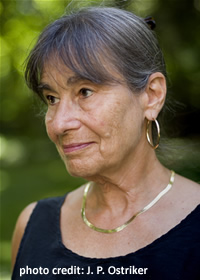 Ostriker has published twelve volumes of poetry, two of which—The Crack in Everything (1996) and The Little Space (1998)—were finalists for the National Book Award. Often sensual and earthy in their imagery, Ostriker’s poems explore personal experience within the context of community and relationship, as in “Approaching Seventy,” a meditation on aging and the end of life, included her most recent collection, The Book of Seventy.
Ostriker has published twelve volumes of poetry, two of which—The Crack in Everything (1996) and The Little Space (1998)—were finalists for the National Book Award. Often sensual and earthy in their imagery, Ostriker’s poems explore personal experience within the context of community and relationship, as in “Approaching Seventy,” a meditation on aging and the end of life, included her most recent collection, The Book of Seventy.
Prior to her reading on January 26 at Vanderbilt University in Nashville, Ostriker answered questions from Chapter 16 via email.
Chapter 16: You wrote, “I don’t believe poetry is therapeutic, but I do think it is diagnostic. Poems clarify, whether we like it or not.” You have also spoken of mystery as a gift. Are you ever conscious of a tension between mystery and clarity—in your work or, perhaps, in life generally?
Ostriker: What a good question. In my own life the crucial “diagnostic” poem is “The Exchange,” the title poem of A Woman Under the Surface, which was published thirty years ago. It’s a poem based on a waking vision I had while canoeing with my children, in which a goddess-like female rises from beneath the water, kills my children, and goes home to kill my husband, while I “having exchanged with her…swim/ Away, in the cool water, out of reach.” Having this fantasy terrified me and haunted me until I wrote the poem. What the violence of this poem showed me—I who didn’t believe in violence of any sort, I who was a good, kind person, I who in any situation of conflict always felt powerless—was that I had a submerged self. A self that was enraged because it was submerged. I had to learn to integrate that female power into my waking everyday life, to accept that I could become a strong person. A lifelong task. So the poem itself was clearly diagnostic—though at the same time it was dealing with the mystery of an unconscious self.
On the other hand, I have just finished reading Toi Derricotte’s tremendously powerful book The Undertaker’s Daughter, which seems to me to be both diagnostic and therapeutic—in the sense that the creation of art is itself a healing activity. So I don’t want to be too dogmatic about this. And certainly poetry can be therapeutic for its readers, even if not for its writer.
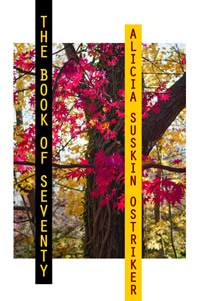 Chapter 16: You’ve been called a “feminist revolutionary.” Leaving aside the question of whether you embrace that designation for yourself, to what extent do you think poetry or storytelling can really be a revolutionary force in the world? Does it make sense for a poet to approach her work with a revolutionary purpose?
Chapter 16: You’ve been called a “feminist revolutionary.” Leaving aside the question of whether you embrace that designation for yourself, to what extent do you think poetry or storytelling can really be a revolutionary force in the world? Does it make sense for a poet to approach her work with a revolutionary purpose?
Ostriker: Feminist, yes, but I’m not fond of the term “revolution,” which can be tossed around rather carelessly. When I think “revolution,” I think “totalitarianism” and “mass murder.” France, Russia, China—let’s bring about heaven on earth, and oh yes, to do so we’ll need to kill millions of people. I see my work as radical, a term related to roots, but not as revolutionary.
Chapter 16: In Stealing the Language, published in 1986, you wrote, “We seldom encounter, in praise of women poets, terms like great, powerful, forceful, masterly, violent, large, or true.” Is it still the case that poetry from women is judged by a different standard, with a different set of virtues? Do you think women poets continue to feel the burden of gender-based expectations?
Ostriker: Right after reading this question I found myself at a table full of women, students at the low-residency MFA program I teach in at Drew University, so I did an informal survey. Since they were all much younger than I am, I thought maybe they’d perceive things differently from me. Nope. The unanimous view was that women were discouraged from seeming “over-ambitious.” One young woman said she decided at age ten, when she determined she wanted to be a poet, that she would change the spelling of her name to make it look like a man’s. A couple of others said they’d considered using only their initials.
We’ve seen dramatic change in the treatment of women writers in my lifetime, but we need to see more. A cultural bias that’s been around for a few thousand years doesn’t change overnight. Of course that bias is unconscious for the most part, at least among “educated” people—so it has to stay underground. And of course it is internalized by women as well. Women are not supposed to want to be great, powerful masterly, etc. There doesn’t even exist in the language a female version of masterly. What would it have to be? Mistressy? Well, we do have some wonderful exceptions. Alice Notley and Anne Waldman come to mind.
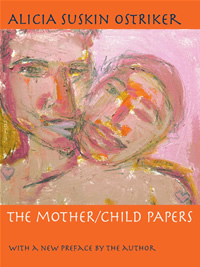 Chapter 16: In a 2006 interview, you made the statement that “most critics don’t know how to read.” Can you explain what you meant by that?
Chapter 16: In a 2006 interview, you made the statement that “most critics don’t know how to read.” Can you explain what you meant by that?
Ostriker: The best critics, with rare exceptions, are poets. Think of Sir Philip Sidney, Samuel Johnson, Coleridge, Shelley, Pound, Eliot, Randall Jarrell, Charles Olson, Denise Levertov. Does anyone remember the names or ideas of non-poet critics? Here again, though, there are exceptions. Northrop Frye, a non-poet, is a truly great critic. I could never have begun to understand what William Blake was doing without Frye. And Harold Bloom is great fun to agree and disagree with. But most academic critics clog their prose with jargon, and hide whatever personal emotions they may have. Poets tend to let their passion for the art shine through. Perhaps, as Rumi says, only those who have felt the knife can understand the wound.
Chapter 16: In For the Love of God, you wrote, “I try to imagine the change in the global religious climate if literalist and fundamentalist readers of every stripe should come to understand that the petty structures of our intellects, theologies, and dogmas can never contain God.” Do you believe there is a real possibility for that change? What do you think of the argument that religion inevitably fosters sectarianism and tribalism, or that humans are hardwired to band together against the Other?
Ostriker: Our DNA inevitably fosters tribalism. Humans are herd animals. We instinctively—and I do mean this biologically—band with those who resemble us, distrust those who don’t. So it’s a good idea for us to be conscious of this and to resist it as much as we can. Religion provides an all-too-effective rationale for war, and for the oppression of others, but so does nationalism. In fact any kind of ism can always be a handy stick to beat someone else up with. But human beings will always form societies, and will always form religions. And religions will always offer shared community, connection with something larger than ourselves, comfort in times of suffering, beautiful works of art, magnificent music, the joy that comes with a sense of the Holy. And guess what—religions also foster help for the helpless, charity for those in need, and the great movements of social justice. Do we really want to live in a world where the only values are the value of the dollar?
Chapter 16: The work of William Blake has been very important to you, and much of your own work has been concerned with the visionary, the prophetic, and the sacred. Are we living in a time that is especially dismissive or hostile toward the visionary? Is there a place for prophets in the contemporary world?
Ostriker: I can answer this one with two words: Allen Ginsberg. Ginsberg was a visionary, a prophet, and a great poet. He changed individual lives, including mine, by his passion and compassion and generosity, he changed literature in this country and all over the world. Yes, he even changed the world. Allen rocks.
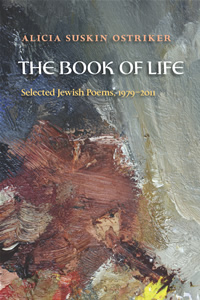 Chapter 16: You’ve devoted a great deal of scholarly and artistic attention to a reshaping of the tradition into which you were born. Do you think an artist has any obligation to confront the injustices of her native culture?
Chapter 16: You’ve devoted a great deal of scholarly and artistic attention to a reshaping of the tradition into which you were born. Do you think an artist has any obligation to confront the injustices of her native culture?
Ostriker: The only obligation of the artist is to trust her obsessions and make art.
Chapter 16: Can you tell us a bit about projects you’re currently working on?
Ostriker: Two quite different projects. The Book of Life: Selected Jewish Poems 1979-2011 is just out. The poems in this volume have been scattered over eight books—a diaspora of poems on family, the holocaust, Israel, spiritual quest, and what it means to be a Jew. Like many Jews, in and out of the synagogue, I wrestle with sacred tradition like Jacob wrestling with the angel. Do I want to change the world? Of course. Do I want, as a feminist, to transform what we mean by God? Yes. It’s my belief that the being we call God the Father swallowed God the Mother in prehistory, like the wolf swallowing Grandmother in the story of Red Riding Hood. As in that story, where Grandmother doesn’t die, I believe the Goddess is still alive in the belly of the beast. We can see her tracks and traces in places of scripture, where she’s been imperfectly erased. I believe God is pregnant with his feminine self, and longs to be delivered. He’ll be less angry and judgmental when she returns to be his companion. I believe we can all be midwives, and bring her back—a notion I get from Lurianic Kabbala, where she is called the Shekhina. In Kabbala, whenever you perform a mitzvah, you are engaged in tikkun olam, the repair of the world, and you are helping bring about the reunion of God and his Shekhina. This is all metaphor, yes? But it’s the metaphor I believe.
My other project is more laid back. It’s a set of poems in the voices of an old woman, a tulip, and a dog. They comment on birth, death, sex, and everything in between. Probably they reprint the id, the ego and the superego, if we were to use Freud’s terms. But I see them as characters, and I never know what they are going to say. They are great fun.

